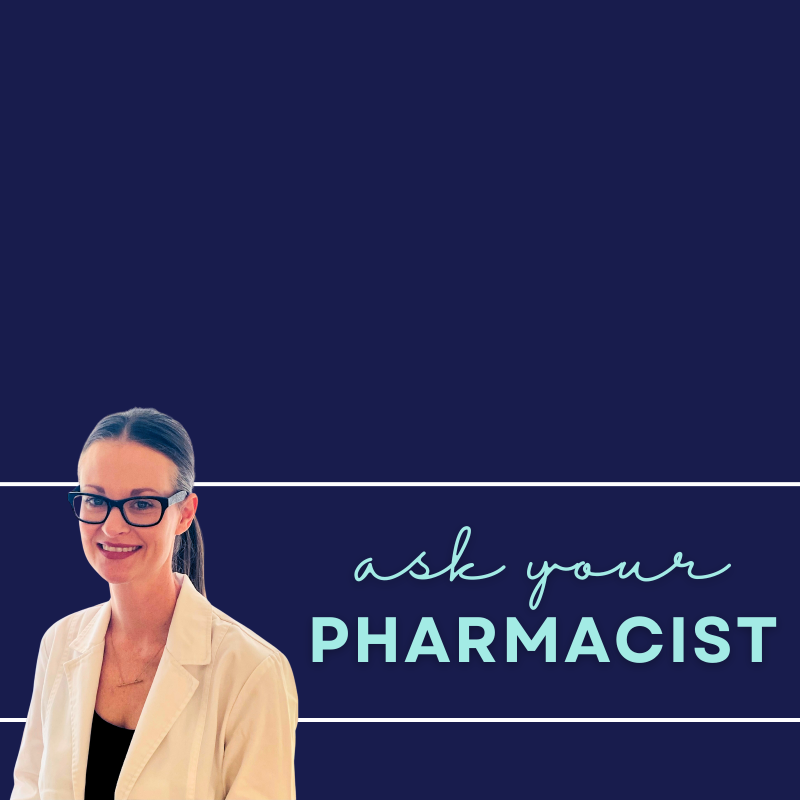
Q: My pharmacy informed me that soon I will no longer be able to get the brand name version of my orange inhaler Flovent as it is being discontinued. Should I be worried about using a generic inhaler? I’ve always paid a little extra to get brand name Flovent and to get the brand name version of my blue inhaler Ventolin.
Many people have worries when switching from a brand name medication to a generic version. Though generic drugs are sometimes perceived to be knock-off medications that do not work as well, generic drugs are in fact copies of brand name medications that contain identical medicinal ingredients, in the same amounts and are taken the same way. They may look slightly different than the brand name version because they contain different non-medicinal ingredients that may affect the colour, size or shape of the generic medication.
Medications contain non-medical ingredients for a variety of reasons. They are used to hold pills together in a solid form, they can help hide the taste of a bitter medicinal ingredient and they can preserve a medication until the expiration date. Some of the non-medicinal ingredients in your inhalers are there to act as propellants so your inhaler will spray and to act as buffering agents to keep your medication stable in the pressurized canister. Some people with allergies or sensitivities to certain substances may tolerate certain generic and brand name medications differently.
When a new drug comes to market it is exclusively available from the original drug manufacturer as the brand name and only version of the product. A patent is issued that legally prevents other drug manufacturers from making an identical version of the medication. After the patent expires or has been successfully challenged in court, other manufacturers can create their own generic version and submit their data to Health Canada for an approval to produce and sell their product.
Health Canada approves and oversees all medications that are available on the Canadian market to ensure they are safe, effective and of high quality. Generic drug manufacturers must submit information to show that differences in non-medicinal ingredients do not affect the safety, efficacy or quality of the drug compared to the brand name product. They must conduct clinical trials on healthy people to show their generic drug is bioequivalent to the brand name drug.
When brand and generic medications are bioequivalent, it means there is no significant difference in how fast the medicinal ingredients are absorbed and released into the body. In these trials, volunteers take both the brand and generic drug and the level of medicinal ingredient in their blood is measured to see if the generic drug releases the same amount of active ingredient at the same rate as the brand name drug. Therefore, you can be confident that generic drugs work in the same way and provide the same clinical benefits and risks as brand name medications.
When generic drugs come to market, it provides a huge cost savings for patients, insurance plans and provincial health care systems. Generics are not new drugs, therefore there is no need to invest in the initial research, animal testing and human clinical trials to demonstrate the safety and effectiveness of the medicinal ingredient. This allows generic drugs to be sold at a significantly lower price.
Many drug plans have rules that limit payment for brand name drugs once a generic drug becomes available. Some plans will continue to pay for the brand name product if the prescriber indicates on the prescription that no substitution to a generic brand is permitted. However, most plans will only cover the cost of the generic medication and the cost difference between the two drugs becomes the responsibility of the patient to pay. This must be a rule with your drug plan and explains why you have been paying extra to have brand name inhalers dispensed.
If anyone is wondering if they are taking a generic medication, the best thing to do is speak to your pharmacist. The public New Brunswick Drug Plans cover the lowest cost generic product, and a special request must be made if there is a medical reason for using the brand name drug instead, such as a reaction to a non-medical ingredient in the generic drug. Private drug plans vary, but similarly, many cover only the generic version of the drug.
Erin Thompson (BSc, BScPharm) is a graduate of Dalhousie University and a community pharmacist practicing at Shoppers Drug Mart in Quispamsis N.B. Her opinions expressed in this column are published for educational and informational purposes only, and are not intended as a diagnosis, treatment or as a substitute for professional medical advice, diagnosis or treatment.